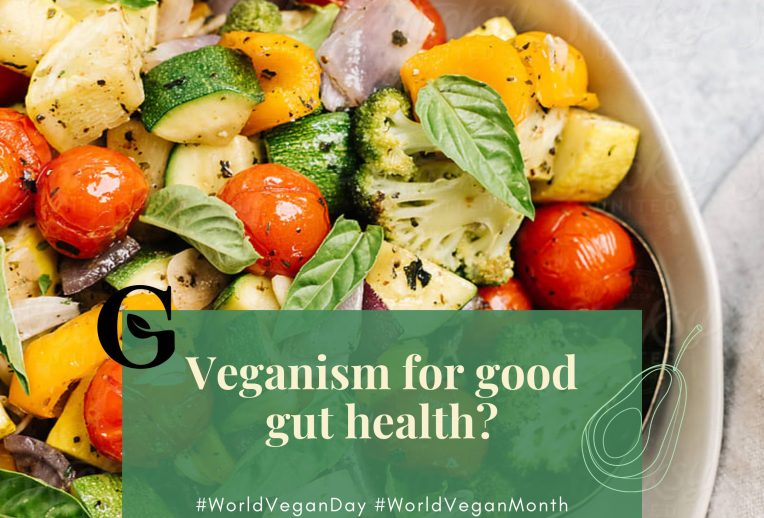Doctors Embracing Plant-Based Diets: A Personal Transformation
Jan 2, 2025Explore the transformative power of a plant-based diet through the experiences of doctors who have made the switch, improving their health and inspiring their patients.
The transformative power of a plant-based diet is increasingly recognized, not just for general wellness, but as a powerful tool for profound health transformations. This is particularly evident in the stories of doctors who have embraced this lifestyle, experiencing firsthand the benefits they often recommend to their patients. This article explores the journey and impact of doctors who have made the switch to a plant-based diet. We'll delve into the health changes, the science behind it, and practical tips based on their experiences, demonstrating how a shift in diet can lead to a significant improvement in overall well-being.
Doctors Embracing Plant-Based Diets: A Personal Transformation
Many doctors, after witnessing the positive effects of a plant-based diet on their patients, have embarked on their own journeys. These personal transformations often serve as powerful testimonials to the effectiveness of this dietary approach. One such example is a urologist who, after seeing his father's dramatic health improvements on a plant-based diet, decided to make the switch himself. He experienced a significant weight loss, a substantial drop in cholesterol levels, and increased energy. This personal experience led him to advocate for plant-based nutrition for his patients. It also underscores the idea that sometimes the best evidence is lived experience, reinforcing scientific findings with personal results.
Another example is an oncologist who, recognizing the link between poor nutrition and cancer, made changes to his own diet. He noted that 18 cancers are associated with obesity or poor nutrition. This personal transformation aligned his lifestyle with the dietary advice he gave to his patients. This reinforces the concept of leading by example within the medical field.
 Credit: www.theguthealthdoctor.com
Credit: www.theguthealthdoctor.com
The Science Behind the Transformation: How Plant-Based Diets Improve Health
The scientific community has increasingly acknowledged the benefits of plant-based diets for overall health. These diets, rich in fiber, vitamins, and minerals, and low in saturated fats and cholesterol, contribute to a wide range of positive changes in the body. A key aspect is the impact on gut health. Plant-based diets promote a diverse gut microbiome, which is linked to improved immunity, metabolism, mood, and energy levels. This is because the fiber in plant foods acts as a prebiotic, feeding beneficial gut bacteria.
Furthermore, plant-based diets have been shown to lower blood pressure, reduce the risk of chronic diseases such as heart disease, type 2 diabetes, and certain cancers, as well as help with weight management. By providing the body with nutrient-dense foods, these diets help support optimal bodily functions and prevent the onset of disease. For instance, studies have demonstrated that a plant-based diet can significantly reduce cholesterol levels. This can lead to a decreased risk of heart disease, a major concern for many individuals.
The changes extend beyond just the physical, with research showing a positive impact on mental well-being. The production of serotonin, the "happy hormone," is largely influenced by the gut, and a healthy gut, supported by a plant-based diet, can contribute to improved mood and mental clarity. The impact of this diet on blood sugar is also notable. The high fiber content of plants helps regulate blood sugar levels, preventing spikes and crashes, and aiding in the management of diabetes symptoms.
 Credit: www.theguthealthdoctor.com
Credit: www.theguthealthdoctor.com
A Timeline of Benefits: What to Expect When Switching to a Plant-Based Diet
The benefits of a plant-based diet often manifest within a relatively short time frame. Within an hour of eating, those with diabetes may find their symptoms easier to manage, as the fiber in plant foods helps regulate blood sugar. Within a few days, bowel movements become more regular due to the increased fiber intake. Within a week, cholesterol and blood pressure can begin to stabilize. It’s been shown that a total immersion into a whole-food plant diet can result in a rapid drop in total cholesterol.
Within a couple of weeks, weight loss may become noticeable, especially when combined with avoiding processed foods and added sugars. After about three weeks, some patients have found a significant decrease in chest pain, an indicator of improved heart health. Furthermore, taste buds adjust, and cravings for processed foods begin to diminish, replaced by a desire for fresh, whole plant foods. Within a month, many individuals experience clearer skin and better overall heart health. Longer term, after a year, circulation is improved, and the risk of heart disease is reduced.
Even sexual health can be positively impacted in as little as 3-6 weeks, as improved circulation from a plant-based diet benefits overall vascular health. These timelines emphasize that the benefits of a plant-based diet are not just long-term, but also include noticeable changes in the short term.
Making the Transition: Practical Tips for Adopting a Plant-Based Diet
Transitioning to a plant-based diet does not have to be a drastic overnight change. It can be a gradual process, adapting to individual needs and preferences. Some individuals may find it easier to go all-in, while others may prefer a more progressive approach. For those who prefer a gradual approach, cutting out dairy first, then meat, and continuing from there is an option. Another option is to go meatless on Mondays, and expanding from there.
Key considerations include focusing on whole, unprocessed foods. While vegan alternatives exist, relying too heavily on processed "fake" meats and vegan cheeses, which can be high in additives and lack the beneficial bacteria found in traditional fermented foods, is not ideal. Instead, focus on a wide variety of fruits, vegetables, whole grains, legumes, nuts, and seeds. These foods provide essential nutrients, including protein, iron, calcium, and omega-3 fatty acids, all of which are crucial for optimal health.
Meal planning is a critical component of success. Planning meals in advance and prepping some ingredients ahead of time can make it easier to stick to a plant-based diet. Experimenting with new recipes can also make the process more enjoyable and less restrictive. It’s important to be informed about what a whole-food plant-based diet entails, and how to get a variety of these foods onto your plate. Finally, for those concerned about nutrient deficiencies, it is always wise to consult with a healthcare professional or registered dietitian.
 Credit: www.theguthealthdoctor.com
Credit: www.theguthealthdoctor.com
Addressing Common Concerns and Misconceptions
There are common misconceptions about plant-based diets that need to be addressed. One common concern is the cost. However, plant-based diets tend to be less expensive than diets high in meat and dairy, particularly with the rising cost of animal products. Another concern is the ability to get enough protein. However, there are many plant-based protein sources, such as beans, lentils, tofu, and tempeh. It's also important to note that not all vegan diets are healthy. A diet focused on processed vegan foods will not provide the same benefits as a whole-food plant-based diet.
Another key factor is the importance of fiber, and the need to increase fiber intake gradually. When a person goes from a little to a lot of fiber too quickly, they may feel bloated and gassy because their gut microbes are enjoying the new diet. The key is to increase fiber intake slowly and steadily, making sure to drink enough water to aid in digestion. Finally, while supplements are not always necessary, those on a plant-based diet should consider taking a vitamin B12 supplement, as this vitamin is primarily found in animal products.
In conclusion, the doctor plant-based diet health transformation is a compelling testament to the power of food as medicine. Doctors who have embraced plant-based diets have not only improved their own health but are also leading by example, inspiring their patients and others to make positive dietary changes. By understanding the science, adopting a gradual approach, and addressing common concerns, anyone can experience the transformative benefits of a plant-based diet.
Jan 21, 2025
Explore the pros and cons of a plant-based diet, including health benefits, potential challenges, and tips for successful implementation. Learn about vegetarian, vegan, and flexitarian approaches.
Jan 20, 2025
Explore the latest research on plant-based diets and their powerful health benefits, including disease prevention, heart health, diabetes management, and cancer risk reduction.
Jan 16, 2025
Explore the nutritional landscape of processed fake meat, comparing them to traditional meat and whole plant foods. Learn about ingredients, health impacts, and making informed choices.